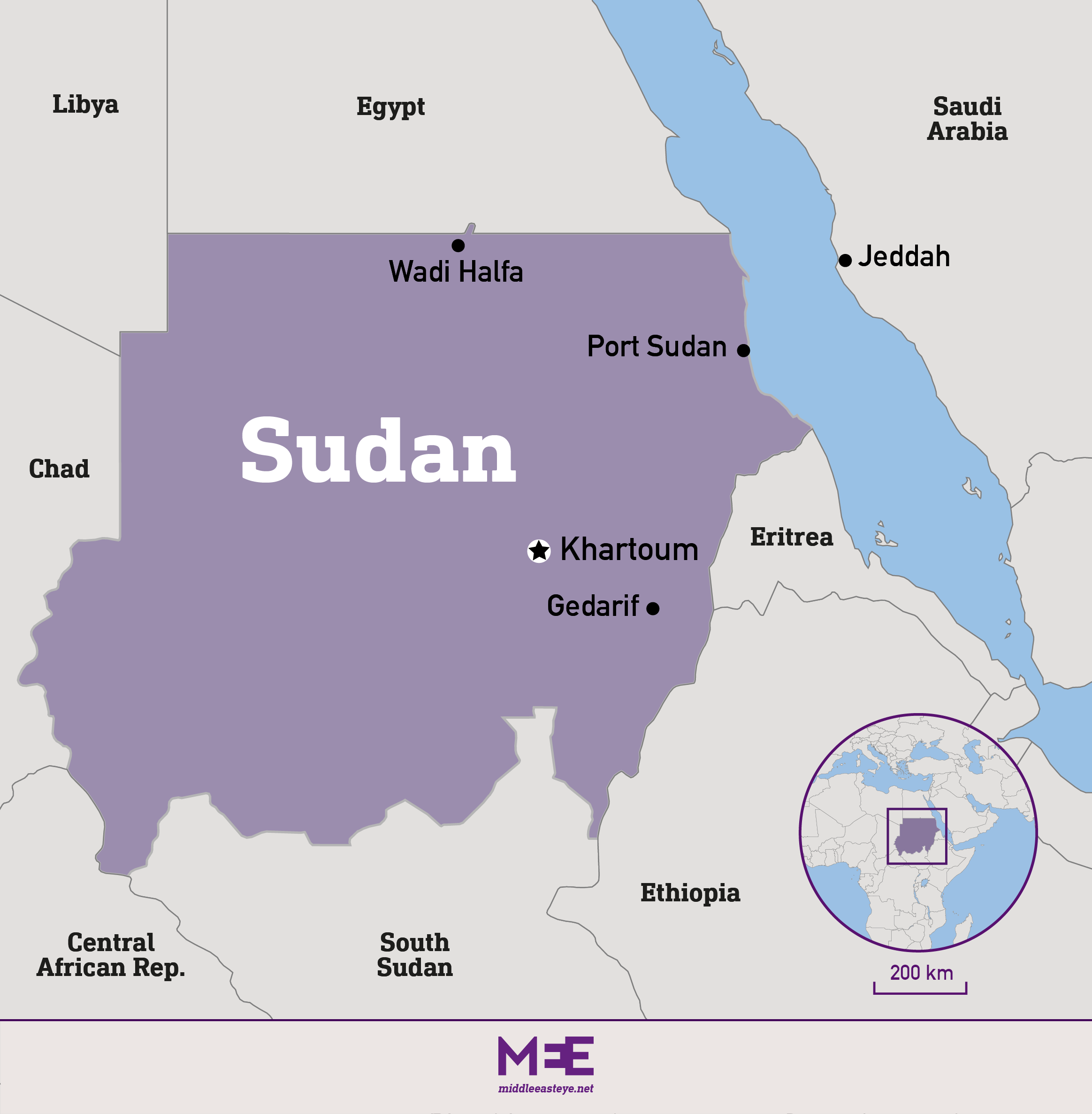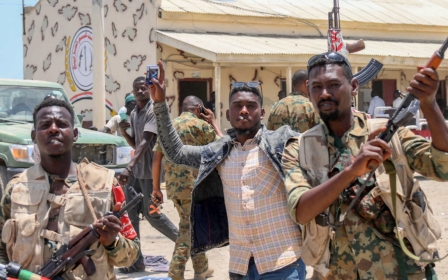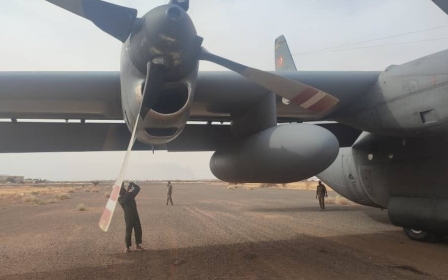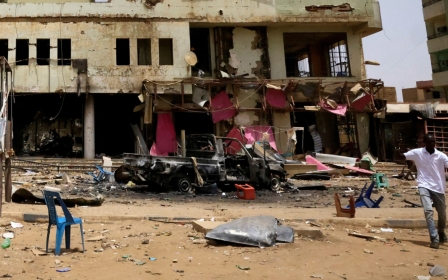Sudan: Air strikes and artillery breach truce, as civilians continue to flee

Air strikes, artillery and heavy anti-aircraft fire rocked Khartoum on Saturday, as Sudan's warring parties breached the latest truce agreement.
More than 500 people have been killed and over 4,000 injured since fighting broke out two weeks ago between Sudan's army and the paramilitary Rapid Support Forces (RSF), sparked by plans to integrate the RSF into the armed forces.
The most recent ceasefire agreement, which was agreed on Thursday after mediation led by the US, the UN, the African Union and Saudi Arabia, is due to expire at midnight on Sunday. But there were multiple reports of violence on Saturday, with both sides accusing each other.
RSF leader Mohamed Hamdan Dagalo, better known as Hemeti, told the BBC that he would not enter negotiations with army chief and Sudan's de facto leader Abdel Fattah al-Burhan until hostilities were ceased.
On Friday, Burhan said he would never sit down with Hemeti, who he described as a "rebel".
New MEE newsletter: Jerusalem Dispatch
Sign up to get the latest insights and analysis on Israel-Palestine, alongside Turkey Unpacked and other MEE newsletters
Despite that, the UN special representative in Sudan, Volker Perthes, told Reuters that both sides had nominated representatives for potential talks to take place either in Saudi Arabia or South Sudan.
"They have both accepted that this war cannot continue," Perthes said.
In El Geneina, in the western state of Darfur, at least 96 people have been killed since Monday, according to the UN.
"What's happening in Darfur is terrible, the society is falling apart. We see tribes that now try to arm themselves," said UN chief Antonio Guterres.
Around 75,000 people have been displaced by the violence in Khartoum, Darfur and the states of Blue Nile and North Kordofan, the UN added.
Civilian evacuations continue
Meanwhile, tens of thousands of Sudanese civilians have made their way to neighbouring Chad, South Sudan, Egypt, Ethiopia and Saudi Arabia.
Some 1,900 evacuees arrived at the Saudi naval base in Jeddah on Saturday, after boarding a ferry from Port Sudan across the Red Sea; 4,880 people have been evacuated to Saudi Arabia, the kingdom’s foreign ministry said.
In one of the latest efforts by foreign governments to evacuate their citizens and others, a US-government organised convoy arrived at the Red Sea city of Port Sudan on Saturday, evacuating US citizens, local staff and others, US State Department spokesperson Matthew Miller said. Evacuees were set to travel on to Jeddah.
Earlier, the United Arab Emirates said an evacuation plane arrived in Abu Dhabi on Saturday carrying citizens and nationals from 16 countries, while the UK said it would end its evacuation flights on Saturday, after airlifting more than 1,888 people on 21 flights this week.
On the border with Egypt, there are long queues and little food at border control, with people waiting for days to be processed by immigration officials near the city of Wadi Halfa.
Meanwhile, Gaza's Crossing and Border Authority said on Friday that "172 students arrived in the homeland through the Rafah border crossing, as the first batch of students coming from Sudan".
A Khartoum resident told MEE on Thursday from the Egypt border that a "huge humanitarian crisis" was taking place there, with "up to 400 buses queued at the border with 50 passengers on each bus". The Sudanese citizen said that Egyptian authorities were making it very difficult to allow them entry into Egypt.
"Many children, women and old people are stuck here with no water, food or access to health care," he said. "There are no shops or restaurants or bathrooms. An elderly gentleman even passed away from this whole tragedy."
MEE reported on Friday that Sudanese caught between the country's warring factions were struggling to find affordable food and vital supplies, as prices soared, shops were looted and key infrastructure was destroyed.
Middle East Eye delivers independent and unrivalled coverage and analysis of the Middle East, North Africa and beyond. To learn more about republishing this content and the associated fees, please fill out this form. More about MEE can be found here.





